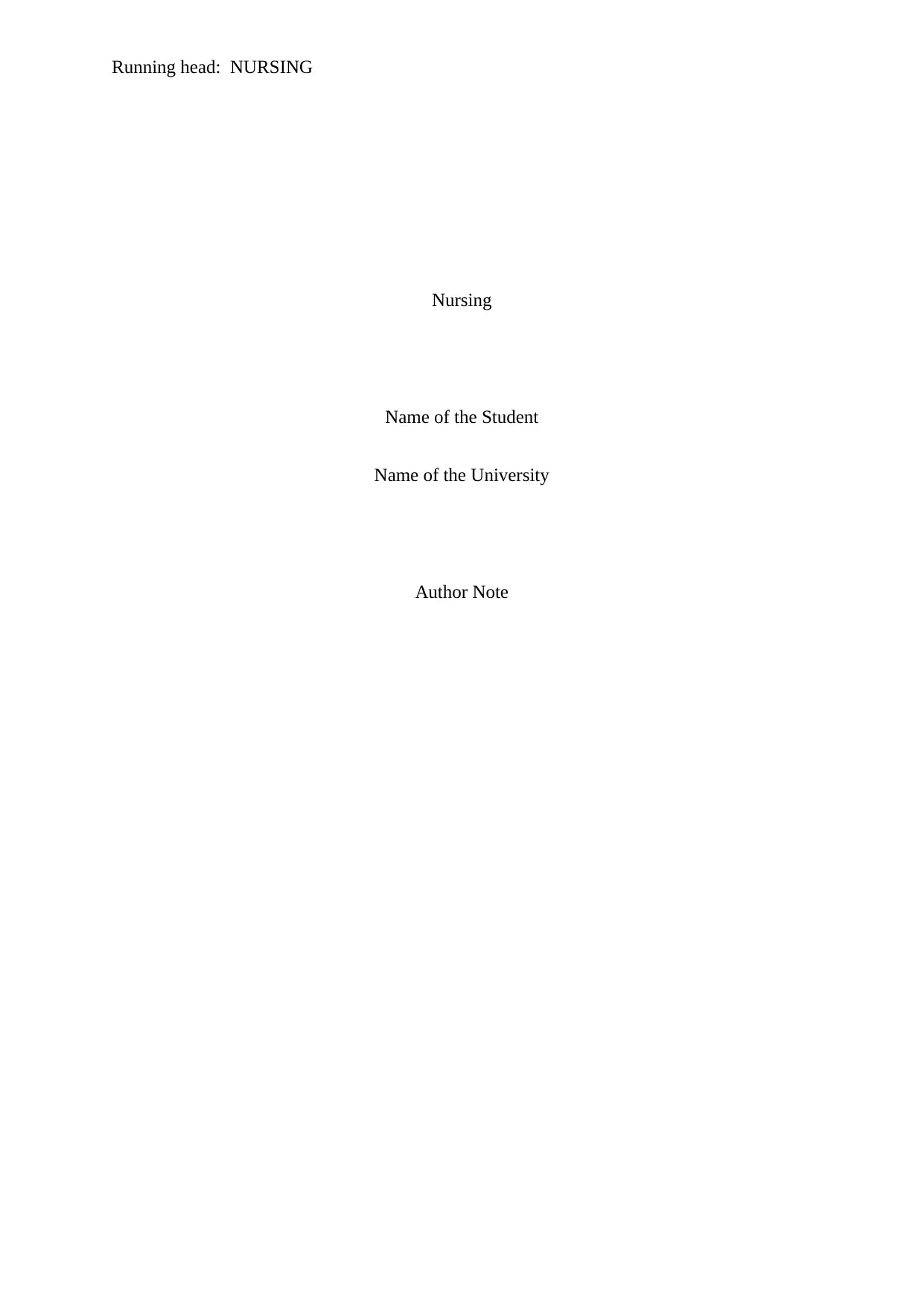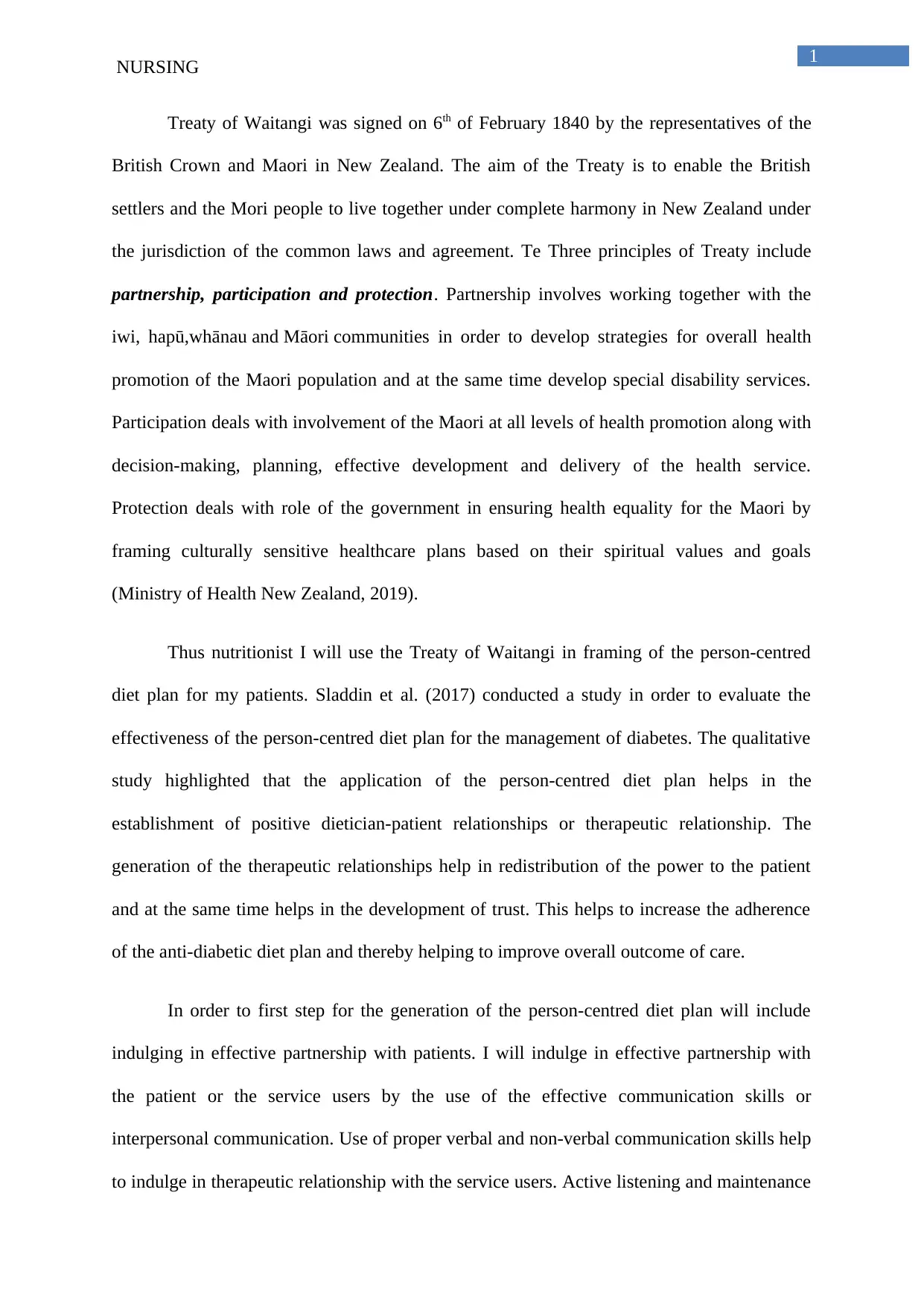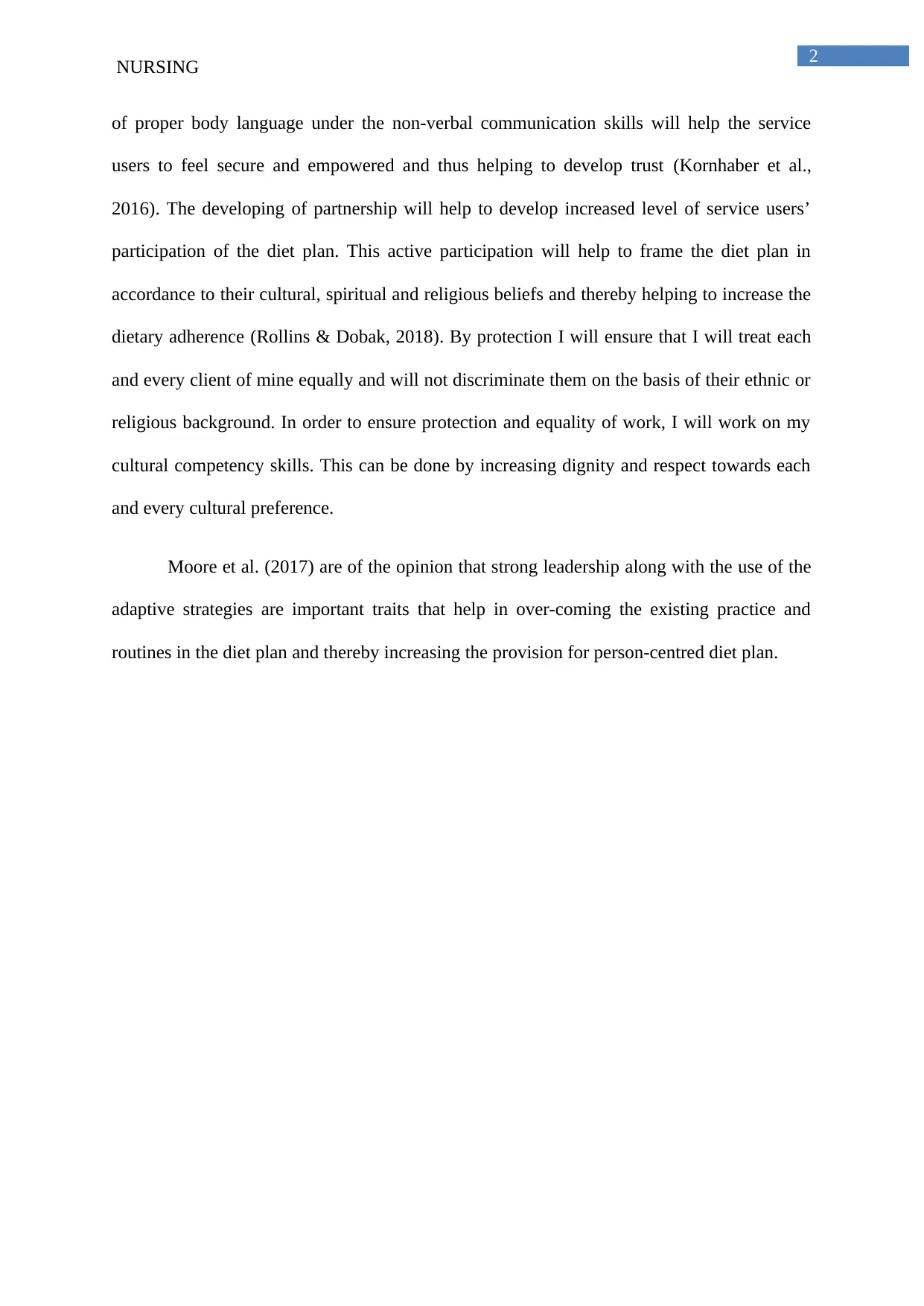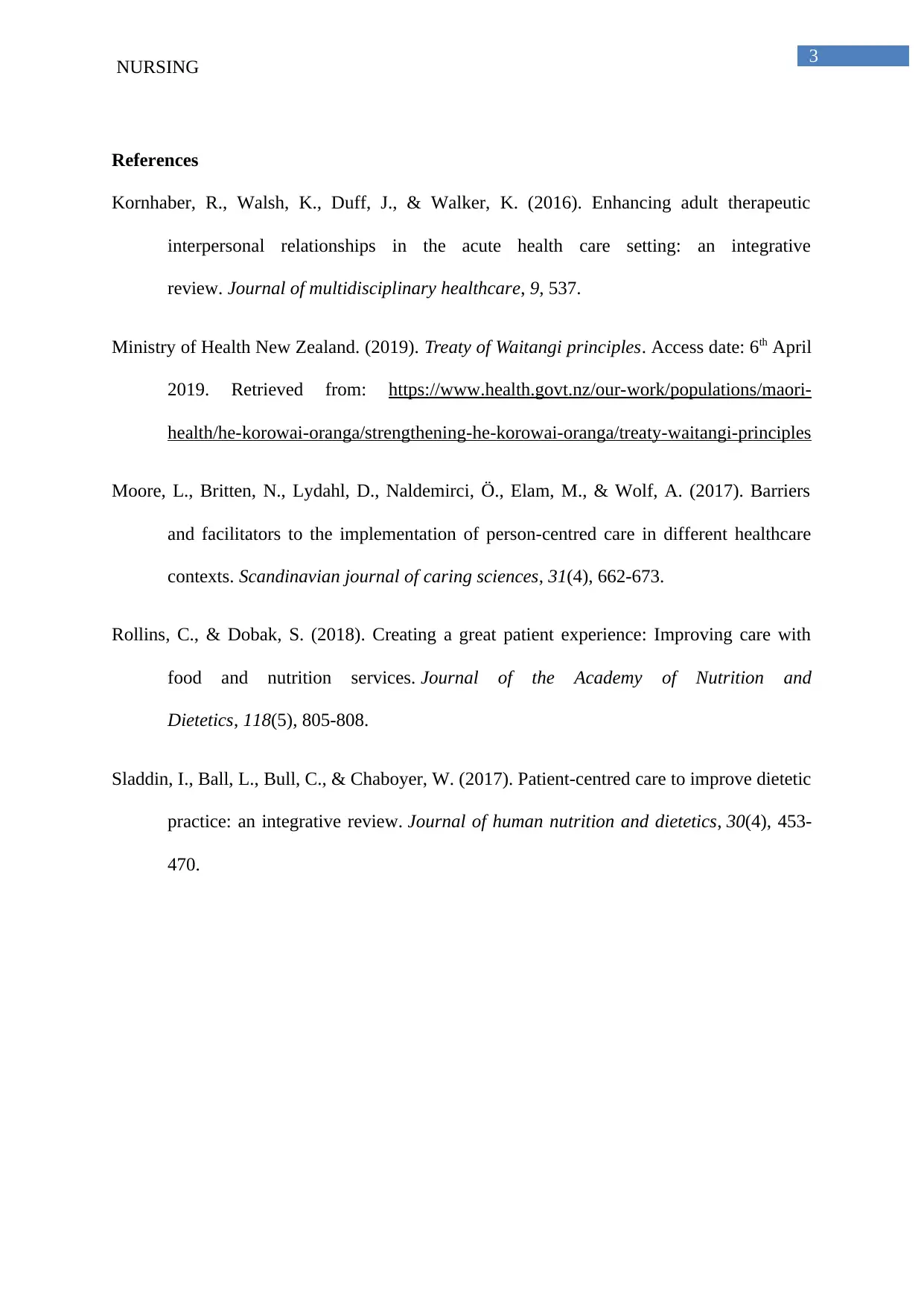Nursing Report: Applying Treaty of Waitangi to Diet Plans for Patients
VerifiedAdded on 2023/01/17
|4
|802
|97
Report
AI Summary
This nursing report explores the application of the Treaty of Waitangi principles in developing person-centred diet plans. It highlights the importance of partnership, participation, and protection in providing culturally sensitive healthcare to Maori patients. The report discusses how nutritionists can use the Treaty principles to build therapeutic relationships, increase patient adherence to diet plans, and ensure equitable treatment. The report references studies that support the effectiveness of person-centred care in improving patient outcomes, emphasizing the significance of effective communication, cultural competency, and strong leadership in implementing these practices. The report concludes by advocating for the integration of cultural values and patient preferences in dietary interventions to enhance overall healthcare delivery.
1 out of 4










![[object Object]](/_next/static/media/star-bottom.7253800d.svg)